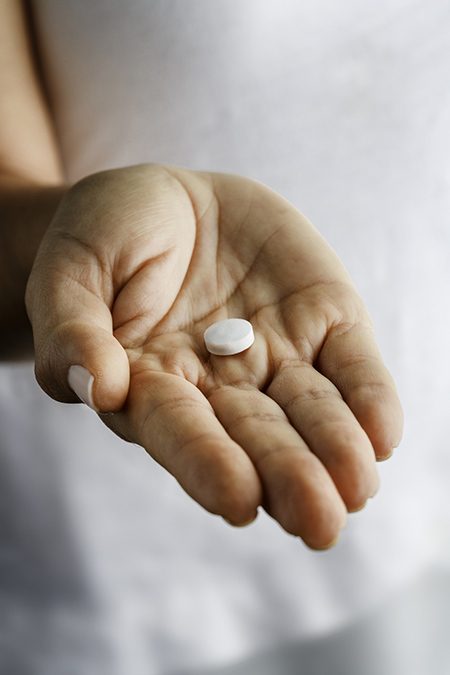Tonsillectomy pain medication management
Download Tonsillectomy Pain Medication Management information sheet (PDF)
Your child will have a very sore throat after this surgery. It is important to attempt to maintain pain control, but with the understanding that there still may be some pain, even with use of medications as recommended. Pain should be gone after 10-14 days from surgery.
What medications can I give my child for pain?
We suggest you give your child acetaminophen and ibuprofen, alternating doses, to treat your child’s pain. This also helps with inflammation.
Will pain medication be prescribed for my child?
Your child does not need a prescription for medications after this surgery.

- Acetaminophen and Ibuprofen are available over the counter at most grocery or drug stores. Alternating doses keep most children comfortable enough to stay hydrated.
- It is important to alternate doses of these medications, every 3 hours. Your child will get acetaminophen every 6 hours, and ibuprofen every 6 hours (i.e. take acetaminophen and wait 3 hours, then take ibuprofen and wait 3 hours. Repeat.). See sample dosing chart on back.
- In some cases, if pain is not well-controlled with alternating doses of acetaminophen and ibuprofen as recommended, your surgeon may prescribe other medications.
- In children under the age of 12, narcotics should be used carefully. For young children under the age of 4, prescription pain medication is not typically needed or prescribed.
- In children over the age of 12, a narcotic other than codeine can be prescribed for breakthrough pain if needed.
- There is significant risk of harm, and even death, with use of codeine medications in children after tonsillectomy. Because of this unacceptable risk, we do not prescribe codeine.
- A visit to the emergency room is rare, but may be required if pain is not well-controlled.
How should I give acetaminophen and ibuprofen to my child?
These medications can be taken by mouth in a tablet or liquid form. Acetaminophen can used as a rectal suppository if your child does not take medications by mouth well.
- It is important to alternate doses of these medications as stated above.
- You should give these doses regularly for the first 5 days after surgery (this includes at night).
- You can give medications on an as-needed basis after 5 days.
How much medication should I give my child?
Please follow dosing instructions on the medication label, based on your child’s current weight.
If you need to call after clinic hours for a concern, call the UC Davis Medical Center hospital operator at 916-734-2011 and ask for the “physician on call for ENT.”
UC Davis Otolaryngology
Glassrock Clinic: 916-734-5400
2521 Stockton Blvd, Suite 5200
Sacramento, CA 95817
UC Davis Otolaryngology
Rocklin Clinic: 916-295-5700
550 W Ranch View Drive
Rocklin, CA 95765
Do
- Do follow hydration guidelines provided by your doctor.
- Do expect to have snoring and mouth breathing after surgery. This should resolve after 10-14 days from surgery when swelling goes down.
- Do use humidifier, if available, at night.
- Do maintain a soft diet to avoid trauma/irritation.
- Do expect to have some weight loss due to change in oral intake from pain.
- Do expect bad breath for about 2 weeks.
- Do expect to have an earache.
- Do anticipate pain after surgery for 10-14 days. Alternate acetaminophen and ibuprofen every 3 hours as needed for pain control.
- Do expect a low-grade temperature (below 101 degrees F).
Don’t
- Don’t eat acidic/spicy foods for several days after surgery.
- Don’t consume red-colored fluids.
- Don’t travel for 14 days after surgery.
- Don’t exercise or have strenuous activity for 2 weeks after surgery.
- Don’t be far from a hospital (no more than 30- 45 minutes).
- Don’t use mouth rinses, gargle or blow nose excessively.
- Don’t expect bleeding. If bleeding occurs, go directly to the emergency room.

